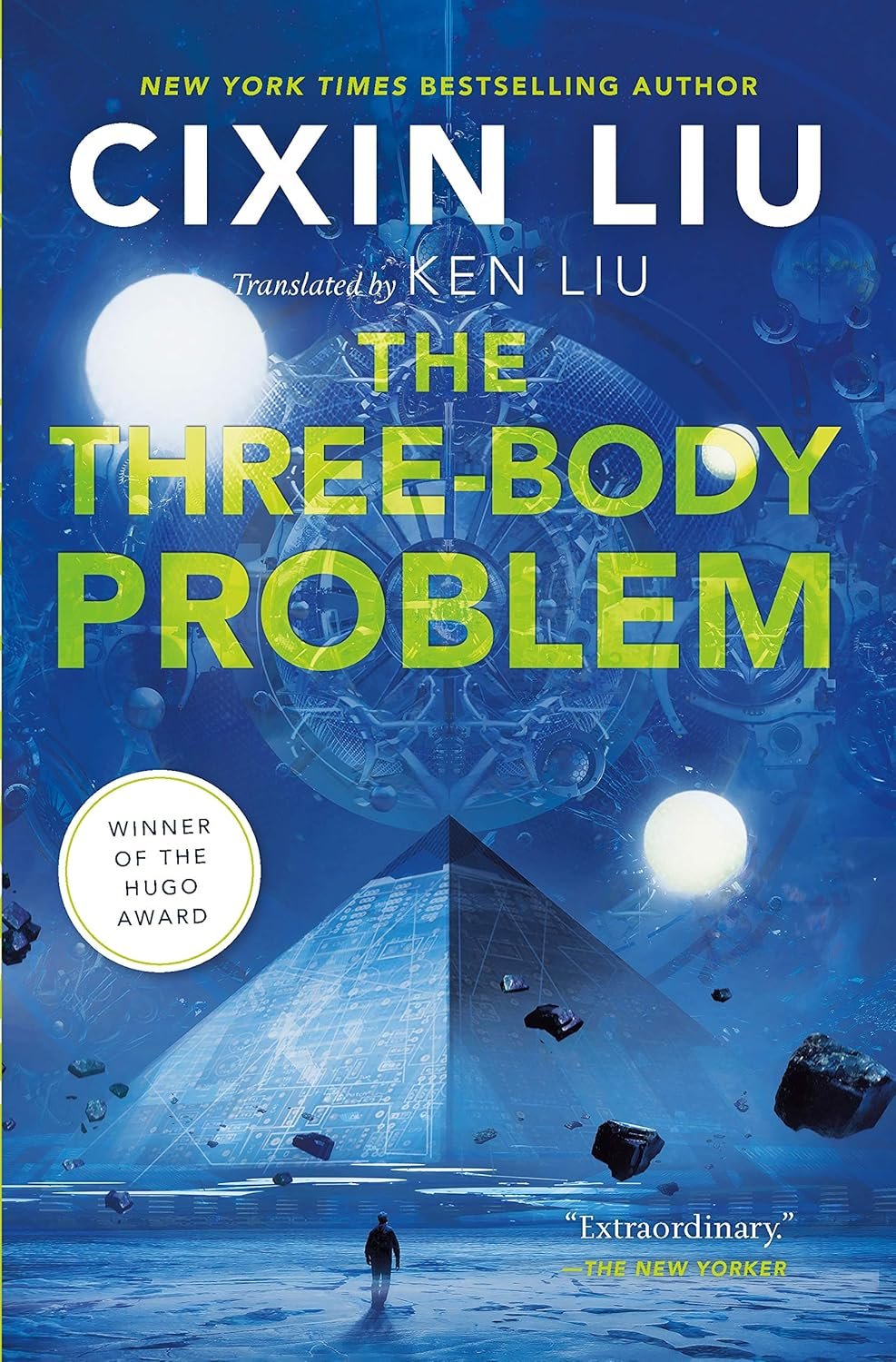Review: The Three Body Problem by Cixin Liu
Blurb:
The Three-Body Problem is the first novel in the groundbreaking, Hugo Award-winning series from China's most beloved science fiction author, Cixin Liu.
Set against the backdrop of China's Cultural Revolution, a secret military project sends signals into space to establish contact with aliens. An alien civilization on the brink of destruction captures the signal and plans to invade Earth. Meanwhile, on Earth, different camps start forming, planning to either welcome the superior beings and help them take over a world seen as corrupt, or to fight against the invasion. The result is a science fiction masterpiece of enormous scope and vision.
Review:
The Three Body Problem by Cixin Liu follows a scientific experiment that leads to a shocking discovery that could unravel the fabric of reality. As strange forces begin manipulating events on Earth, brilliant scientist Wang Miao and hardened detective Da Shi are drawn into a web of cosmic intrigue.. With humanity’s fate at stake, they must uncover the truth hidden within a mysterious game that could change everything we know about the universe.
I had this series on my radar for a while due to the glowing recommendations on Bookstagram and was considering picking up the books to see what all the hype was about. As luck would have it, the new bi-monthly Sci-Fi subscription that The Broken Binding started decided to do special editions of the Remembrance of Earth's Past trilogy. I couldn’t contain my excitement to actually dive into the story and have some amazing editions to read them from. To make the experience even better, I arranged a buddy read with some Bookstagram friends, which enriched the journey even further.
Three Body Problem is a brilliant blend of hard science and philosophical inquiry that challenges the reader to think deeply about humanity’s place in the universe. The story is mind-bending, seamlessly weaving together complex scientific concepts, historical events, and grand ideas into a narrative that feels both vast and intricate. It constantly keeps the reader questioning everything, and as the many threads laid throughout the novel gradually come together, they reveal answers to the major plot points in a truly satisfying way. Cixin Liu’s execution is nothing short of remarkable as he masterfully balances intricate scientific theories with compelling storytelling, making this a book that lingers in your thoughts long after you’ve turned the last page.
The characters in The Three-Body Problem are equally compelling, serving as anchors for the reader amidst the novel’s grand ideas. Wang Miao, a nanomaterials researcher, is a relatable protagonist as he experiences both wonder and unease while uncovering the mystery at the heart of the story. Another standout character is Da Shi, a detective with a no-nonsense attitude, whose witty and blunt remarks add a refreshing contrast to the novel’s more cerebral elements. His sharp instincts and straightforward demeanor provide a grounded perspective, making the unfolding events more relatable. I especially loved how his presence at key moments helped break down the novel’s complex theories, offering the reader a more digestible way to approach the mind-boggling scientific concepts. At times, it almost felt like he was breaking the fourth wall by encouraging readers to simplify their thinking, to look at problems from a different angle, and to always find the simplest explanation.
While The Three-Body Problem focuses more on plot than character development, Cixin Liu uses his characters brilliantly to reflect different facets of humanity’s response to the unknown. Their struggles, choices, and growth feel authentic, and the way the novel explores cosmic questions and complex scientific theories through their experiences makes the story feel more immersive and accessible.
One particular aspect of the book that I thoroughly enjoyed especially as someone with an Electrical Engineering background and a love for tech was the explanation of how a computer works. The way the novel broke down hardware fundamentals, by using logic gates to describe system processes like memory storage and power functions, was fascinating. But what truly impressed me was how Liu used the concept of a human computer, with a massive number of people simulating computational processes. This was an ingenious way to explain computing in its most fundamental form, and I found it both brilliant and enjoyable to read.
In conclusion, The Three-Body Problem by Cixin Liu is a thought-provoking and ambitious novel that pushes the boundaries of science fiction. Its mind-bending narrative, intricate plotting, and richly developed themes make it a must-read for anyone who enjoys stories that challenge the imagination while exploring profound questions about existence and humanity’s future. Whether you’re a fan of hard science fiction or simply love a well-crafted, intellectually stimulating story, this book is sure to leave a lasting impression.
